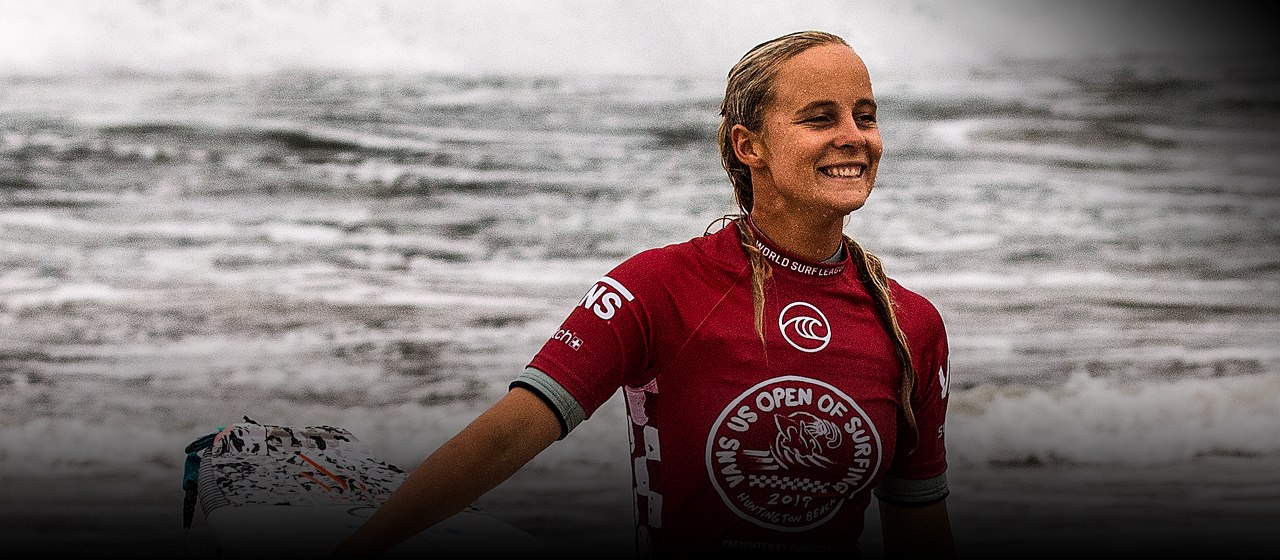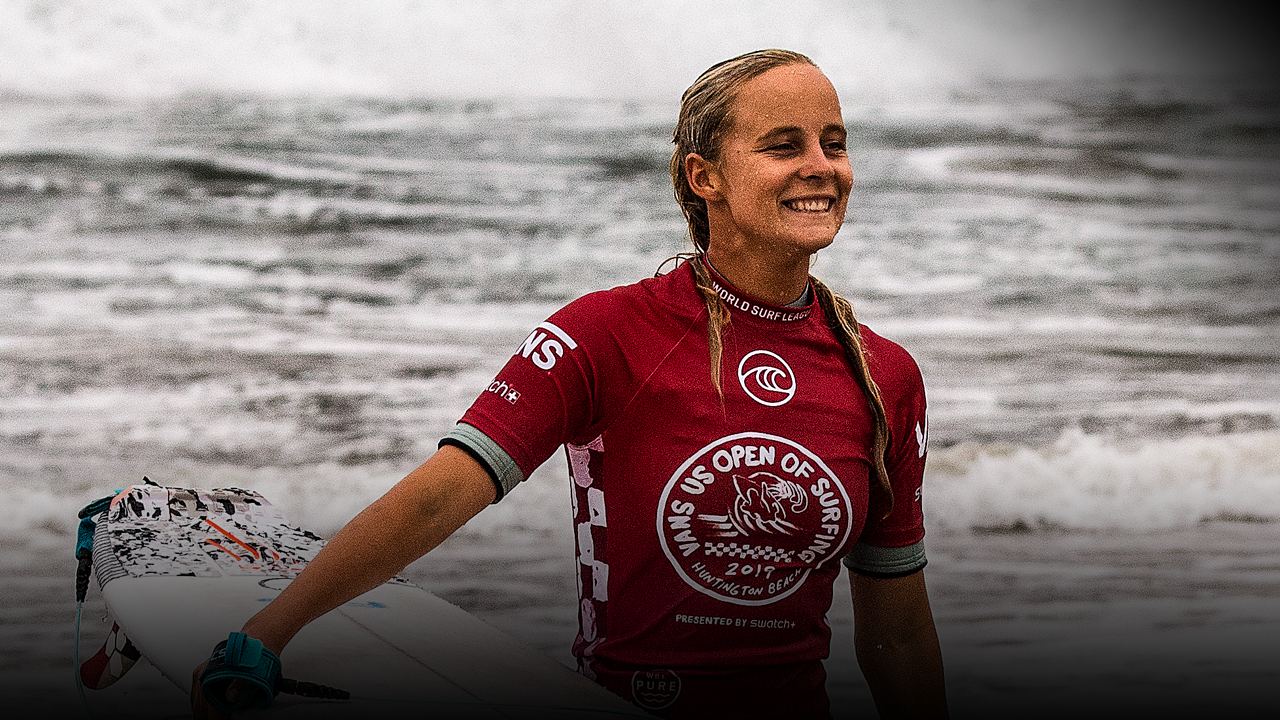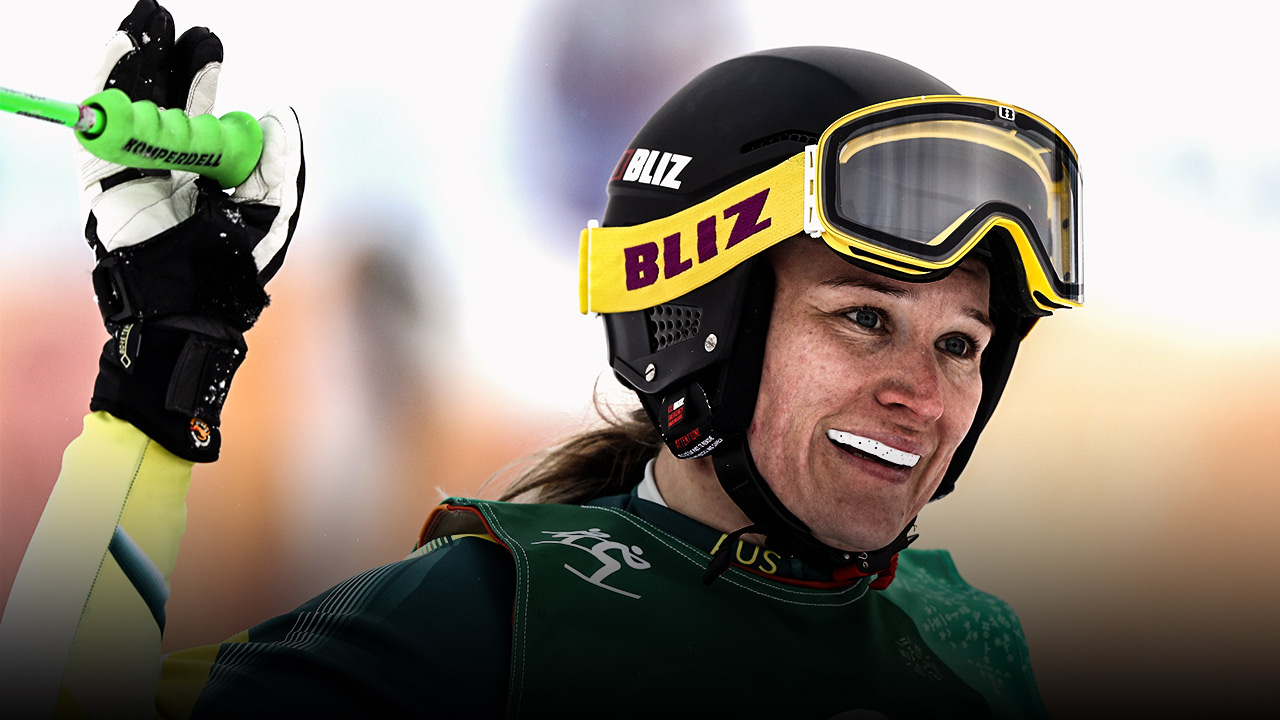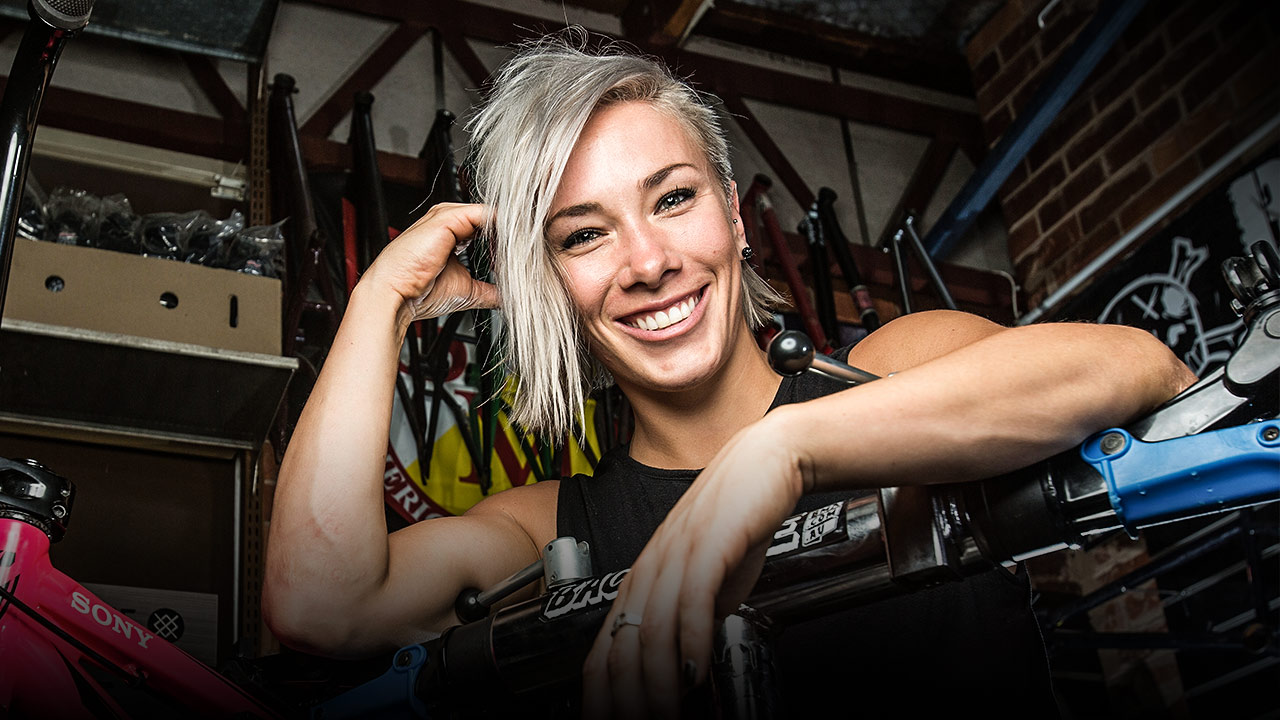AIS
‘I knew I needed to change things’
In January 2016, I won the World Surf League (WSL) World Junior Titles in Portugal.
I was 18 at the time and that was my best result up until then, although I had also won the WSL Australasian Junior series the year before which qualified me for the Worlds.
After the World Juniors 2016, I spent the year competing in most of the WSL World Qualifying Series (WQS) events. A top-six finish on the tour qualifies you for the WSL World Championship Tour.
For me, qualifying came down to one heat. I needed to make it through the semi-finals in Cronulla to qualify. Unfortunately, I was pipped in the semi-finals and missed out on qualifying by one heat.
That was a really hard moment for me because I had gotten so close and I was worried the chance might not come again.
After Cronulla, I thought 2017 was going to be my year to charge up the ratings and qualify for the World Tour. That’s not exactly what happened. I made a lot of mistakes consistently in heats. I had a bit of a hothead and when things went wrong and I didn’t have the mental skills to pull myself out of that space. I’d just spiral out of control.
I couldn’t hold my emotions in. People picked up on that.
I had a real problem with starting heats well and having to play catch up. I’d often take off on a really bad wave and was under pressure from then on. I didn’t have patience. I’d see people who I knew I should beat in the heats doing well and that frustrated me.
There were a bunch of girls younger than me doing well who I felt I should be beating and I was getting so frustrated.
I was an emotional competitor. I wasn’t good at keeping my composure under pressure. Sometimes I’d splash the water, maybe swear a bit. The other competitors can pick up on your vibe and run with it, they’ll think ‘this chick’s frustrated, all I need to do is put a bit of pressure on her and she’s going to snap’.
I couldn’t hold my emotions in. People picked up on that.
Towards the end of 2018, I began to work with Surfing Australia’s sports psychologist Jason Patchell, who taught me to work with my emotions – not against them.
Jason helped me a lot mentally. He taught me not to base my self-worth on my results. Surfing was the only thing I had in my life at the time and sometimes I felt the results I got were the only indication of how I should perceive myself.
I slowly learned to disconnect from that and understand that I was much more than my results.
The same year I started working with a surf coach Mark Richardson, in Palm Beach, and we turned the competition aspect of surfing into more of a game than an anxiety.
At times I’d be thinking ‘oh my God, I’ve got to get through this heat or my sponsors won’t be happy.’ It went from that to ‘this chick did this, what counter move can I do to get one up on her?’
It became more like a game of chess than an emotional battle.

I was finally where I wanted to be in professionally. I had qualified for the 2020 WSL Dream Tour just before COVID-19, which has caused all sorts of chaos to my plans.
While the suspension of the Tour has been frustrating, there is one silver lining – it’s given me a lot of time to work on my studies. I am studying Mechanical Engineering at Deakin University.
Study was another significant change I made after a few years trying and failing to crack the Tour.
As an elite athlete, I was doubting things, making silly mistakes and either overthinking everything or underthinking everything – I couldn’t find a balance.
When I was finishing high school, I had decided to apply for a civil engineering course but decided it was too soon and I felt I wouldn’t be able to balance the qualifying series and university at the same time.
But three years down a track of terrible results, I knew I needed to change things. Part of that was a sense I wasn’t learning anything new and my brain was going stale.
I went to see Surfing Australia’s athlete wellbeing and engagement manager Michelle Mitchell, who suggested I might be able to take up a study pathway.
We brainstormed on what I could do to help take some pressure away from surfing. After a visit to URBNSurf, a wave pool complex in Melbourne, I opted to study mechanical engineering. The mix of mechanics, wave pool design and surfing intrigued me.
There are a lot of avenues to pursue in that field. There is a teacher at Deakin University working on how lycra and compression wear affects performance. It’s another cool avenue I hadn’t realised you could go down with mechanical engineering.
I’m an ambassador for an engineering company called Acciona, an environmentally sustainable engineering company that works in renewable energy. Through Surfing Australia they came and started supporting me and through them I was introduced to Deakin.
I have an athlete support person at uni, so if I have any problems I just shoot him an email and I get help straight away.
The studying had clear benefits on my sporting life.
When I was surfing I found I was making smarter decisions and enjoying it a lot more. I went from performing horribly to winning the qualifying series the year I started studying again.
Even through high school I really enjoyed doing the work. I’m a little bit of a nerd to be honest.
I like maths; the fact there is one answer satisfies me. With English, there are endless possibilities – I don’t like that. I like problem-solving with one definitive answer at the end.
If I don’t do anything for a while my brain goes a bit soggy and I make silly decisions. Having this keeps my mind busy and gives me more substance than just surfing.
I know as a pro surfer I have the best job in the world. I’m definitely not complaining. But there are days it gets repetitive and having that to mix it up helps a lot.

A lot of athletes have had their routines completely changed by COVID-19, so I’m thankful I’m still able to go surfing.
A lot of countries have banned people from entering the water and I’ve seen footage of people being arrested for surfing overseas. We are so lucky here.
It helps we’ve got a huge coastline so everyone can spread out. I think I’d go crazy if I couldn’t still go to the beach.
I live on the Gold Coast but I’ve been traveling down south of the border to the Cabarita, Pottsville and Kingscliff areas to avoid crowds and find little banks to myself.
The virus has affected a lot of people in a lot of ways but I don’t think it’s affected me all that much, which I’m grateful for.
It’s actually allowed me a fresh look – given me more freedom in a way.
Through Surfing Australia I’ve still been able to keep in contact with my sports psych and coaches.
We’re making it work.
More about: AIS | Isabella Nichols | Olympic Games | surfing






 Load More
Load More